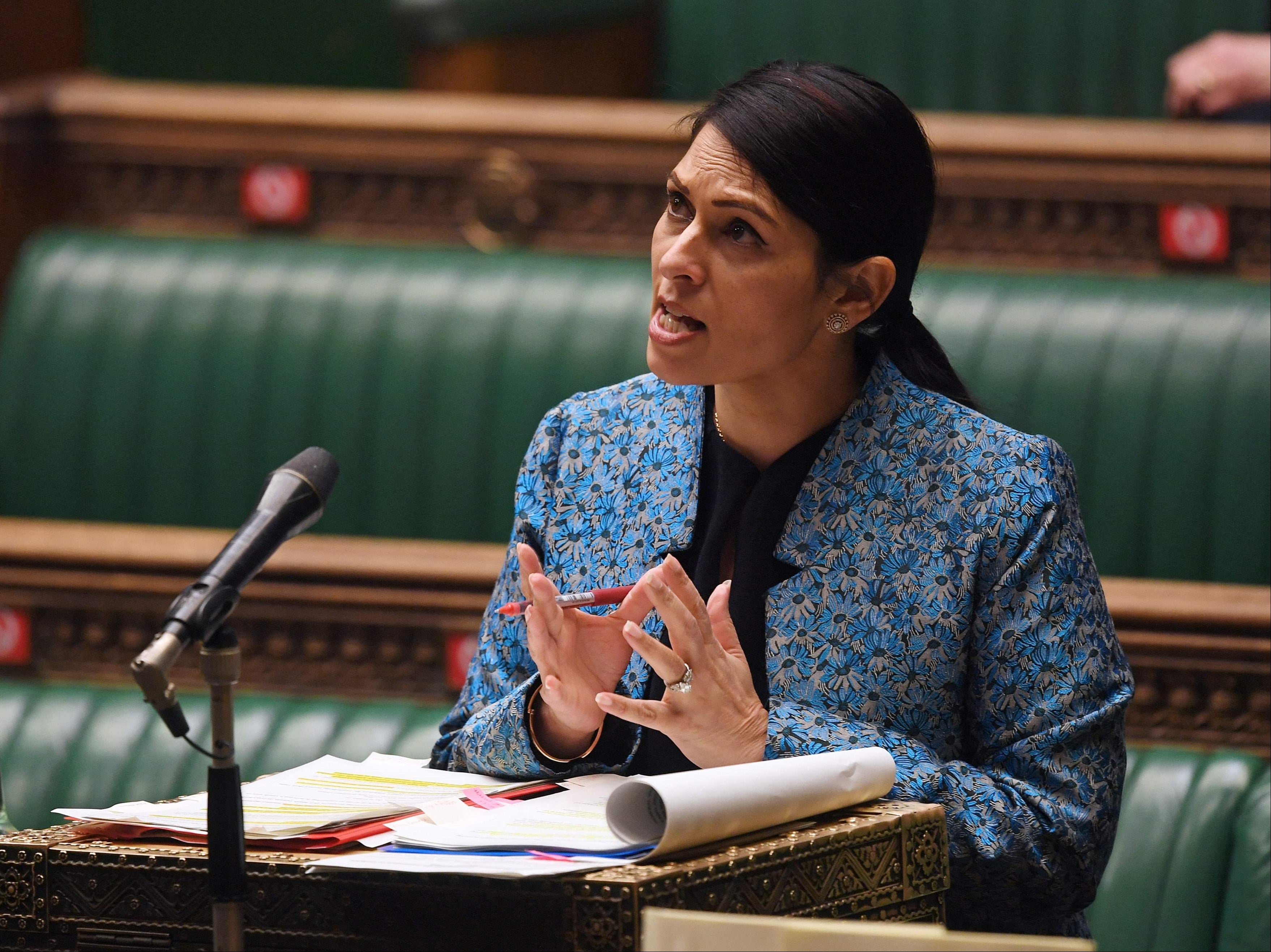Priti Patel’s wish to send unwanted migrants to far-flung locations is no answer to a serious problem
Editorial: It makes little sense to be moving random individuals thousands of miles around the world

Home Office civil servants are so horrified by the government’s plans to maroon asylum seekers in various offshore locations that they have leaked the plans not once but twice.
Last autumn and again now, some Whitehall blue-sky thinking about dumping asylum seekers in the most unseemly of places has again emerged, to the embarrassment of everyone except Priti Patel, who insists on pursuing her strange project.
If nothing else, it at least demonstrates Ms Patel’s tenacity. The home secretary’s refusal to compromise with common sense and reality is well-known, and hardly admirable, but in its own way it has a certain monumental “last days in the bunker” quality to it. We knew she was stubborn and forceful, but planning to send unwanted migrants to the Isle of Man and Gibraltar, or possibly Turkey and Ascension Island, or failing that the Western Isles and the Isle of Wight, would be taking the imaginative use of executive power a little too far.
It might have helped if she had asked the authorities in some of those places whether they minded awfully taking in some migrants. The Isle of Man and Gibraltar, while enjoying close links with the UK, are effectively independent so far as their internal affairs are concerned, and they have already rejected the putative scheme.
No doubt the Scottish government would have something to say about the relocation of migrants to the Highlands and islands, too. The irony there is that Nicola Sturgeon has already declared her willingness to accept migrants for the purposes of settlement in depopulating parts of Scotland, rather than sticking them behind barbed wire in a fetid camp.
British overseas dependencies might be more promising locations. St Helena, for example, in the middle of the south Atlantic, is where the British exiled Napoleon, whence he was slowly and inadvertently poisoned to death by the tiny residues of arsenic in the wallpaper of his home. The Pitcairn Islands, even further away in the Pacific, has the distinction of being inhabited by the descendants of the mutineers on HMS Bounty. The British empire still has some treasures.
Plainly, the Patel scheme is a copy of the past policies of Australian governments, who have long been hostile to the arrival of any kind of migrants. Apart from the active use of the royal Australian navy to push migrant boats back towards southeast Asia, the principle was that migrants should never be allowed to set as much as a toenail onto the territory of the Commonwealth of Australia proper.
Read more:
Migrants were therefore transported to such foreign territories as Cambodia, Nauru (an independent micro state) and Manus Island, part of Papua New Guinea. The Australians would pay the governments concerned to deal with their problems for them. The policy was criticised for being cynical and costly, which is precisely what Ms Patel’s version of it would also be.
It makes little sense to the taxpayer to be moving random individuals thousands of miles around the world. The prospective waste of money is huge, and after Brexit failed to deliver hermetically secure UK borders, the costs of this futile struggle are increasing. Indeed, the UK is already paying the French government to patrol its coasts and contain the flow of dinghies trying to cross the English Channel. It has had, at best, limited success, and as spring turns to summer and the waters grow calmer, no doubt more desperate people will be tempted to make the journey.
There are no easy answers as to where to house refugees and other migrants once they arrive in Britain. But most of the government’s attempts to do so, such as using abandoned military barracks, have been, frankly, inhumane and counterproductive. No matter how grim the dormitories are they will always be preferred to a war zone, so they do not even act as a deterrent, and they simply end up as vectors for Covid-19 and targets for protest, and even arson.
Insanitary, overcrowded blocks of neglected people are no answer to the challenge, whether they happen to be in Folkestone or Gibraltar. Ms Patel should change her mind, if she can bring herself to.
Join our commenting forum
Join thought-provoking conversations, follow other Independent readers and see their replies
Comments